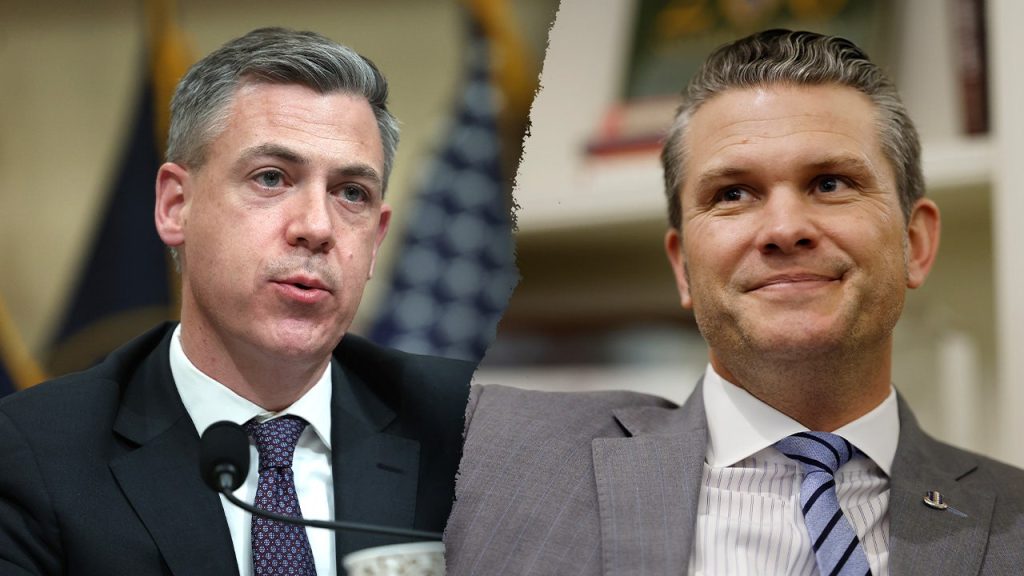The unfolding controversy surrounding Pete Hegseth’s nomination for Secretary of Defense took a dramatic turn with a misinformation incident involving the United States Military Academy at West Point. The academy mistakenly informed a ProPublica reporter that Hegseth had not been accepted, contradicting Hegseth’s claim of having received an acceptance letter but choosing not to attend. This error prompted a swift response from Congressman Jim Banks, who accused West Point administrators of attempting to “sabotage” Hegseth’s nomination and demanded a thorough investigation into the circumstances surrounding the misinformation.
The incident began when ProPublica reporter Jesse Eisinger was investigating Hegseth’s claim of being accepted to West Point. Eisinger contacted West Point’s Office of Public Affairs (OPA) for verification and was reportedly told “twice on the record” that Hegseth had not even applied to the academy. This information, had it been published, would have cast a shadow over Hegseth’s credibility. Anticipating the potentially damaging report, Hegseth preemptively released his West Point acceptance letter, proving his assertion and prompting ProPublica to drop the story. However, the incident ignited a political firestorm, with Congressman Banks taking center stage in demanding accountability.
Congressman Banks, an Army veteran and staunch supporter of Hegseth, framed the West Point error as a deliberate political act aimed at undermining Hegseth’s nomination. He expressed outrage that West Point officials would interfere in the political process by providing false information about a presidential nominee. He characterized the error, even if unintentional, as an “unforgivable act of incompetence” and demanded that West Point provide Congress with all communication and documentation related to the incident. This demand signals a potential congressional inquiry into the matter, raising the stakes for West Point and further politicizing the situation.
West Point has since issued an apology, acknowledging the error and confirming that Hegseth was indeed offered admission in 1999. The academy attributed the mistake to an employee’s reliance on inaccurate information from an archived database. They emphasized that the academy takes the situation seriously and apologized for the administrative error. This apology, while seemingly swift, does little to quell the concerns raised by Congressman Banks and others who suspect a deeper, politically motivated agenda at play. The incident underscores the potential for administrative errors to escalate into significant political controversies, particularly during high-profile appointments like cabinet nominations.
Hegseth, a veteran of the Army National Guard with tours in Iraq and Afghanistan, has been meeting with senators as part of his confirmation process. The West Point incident, while potentially damaging, is likely to be a key focus of these meetings. Hegseth will likely need to address the issue head-on and reassure senators that his integrity remains intact. The controversy also potentially strengthens his narrative as a disruptor who challenges established institutions, a theme that aligns with his and President-elect Trump’s political messaging.
The incident adds another layer of complexity to Hegseth’s nomination. He already faces scrutiny from some quarters for his conservative views and his prior statements considered by some to be controversial. The focus now shifts to the Senate confirmation hearings, where Hegseth will undoubtedly face questions about this incident. The West Point error, regardless of intent, has now become a political football, with Congressman Banks championing Hegseth and painting him as a victim of bureaucratic sabotage. This incident highlights the increasingly polarized political climate where even seemingly straightforward administrative errors can become highly charged political events.










